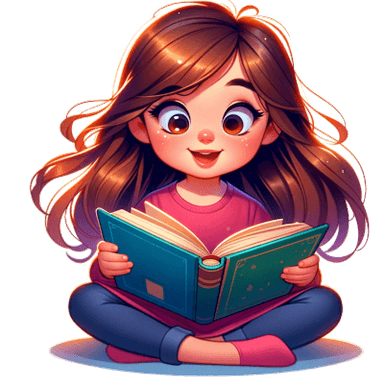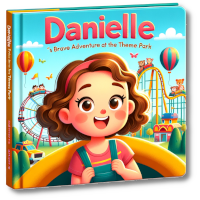Reading with children
a blog by Magic Tales

How Parents and Guardians Can Handle Jealousy in Children: The Power of Children's Books and Reading
In the panorama of human emotions, jealousy is a complex feeling that everyone experiences at some point - even children. As parents or guardians, guiding children through these turbulent emotions can be challenging. Still, fear not, for children's books and reading might just be your secret weapons in helping your child navigate through this tricky emotion.
The Origin of Jealousy in Children
Understanding the root of jealousy in children can be an incredibly helpful step in managing it. At its core, jealousy is typically linked to feelings of insecurity, fear, and rivalry. When introduced to situations such as having a new sibling or feeling left out at school, children might have trouble appropriately expressing these complex emotions. Thus, jealousy begins to surface.
Children's Books as a Solution
This is where children's books swoop in to save the day. Children's literature often tackles a wide range of topics - including emotional intelligence and handling feelings. Reading relevant materials with your children not only reassures them that they are not alone in their emotions but also provides opportunities to discuss their feelings openly. These conversations then help children understand and effectively manage their emotions.
Below are some children's books that address jealousy and can aid you in guiding your child through this emotion:
'When I Feel Jealous' by Cornelia Maude Spelman helps children understand why they feel jealous and offers strategies for handling such emotions.
'I'm Not Freddie' by Jonathan Bentley is a humorous take on sibling jealousy, a common occurrence in many families.
'Giraffes Can't Dance' by Giles Andreae and Guy Parker-Rees is a wonderful tale of jealousy that also includes themes of individuality and self-esteem.
Reading - An Emotional Outlet
Reading together has always served as a beautiful bonding experience between adults and children. Still, in this case, it transcends even that. When children are immersed in these stories, they no longer serve as mere entertainment but become a mirror for them to reflect their feelings. In this safe and imaginative space, children are likely to feel more comfortable discussing their emotions, fostering open dialogue about these complicated feelings. Reading also allows children to relate to characters' experiences and learn from their responses.
Conclusion
As parents or guardians, navigating a child's emotional world can seem as complicated as cracking a coded treasure map. That said, it doesn't always have to be so. With the helpful use of children's books and discussions stimulated by reading, managing emotions such as jealousy can be transformed into an opportunity for learning and growth. More importantly, it ensures that children feel supported during their emotional journey and helps them mature into emotionally intelligent individuals in the journey of life.
Want a personalized book to read with your child about Jealousy?
Takes as quickly as 30 seconds to create
Create a book about Jealousy

